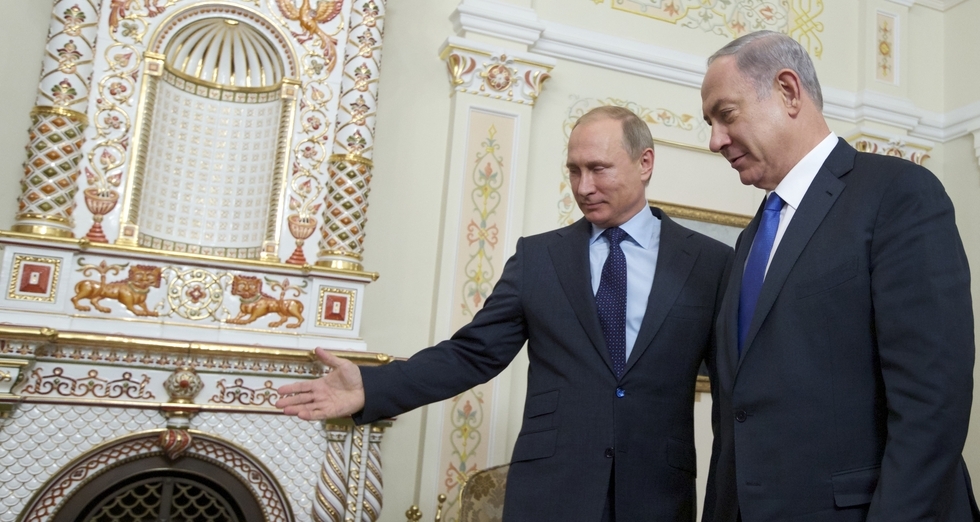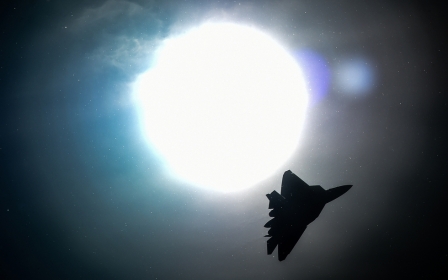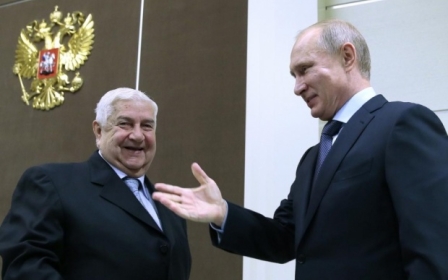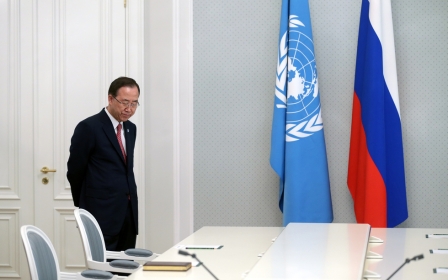Russia blames 'outside sponsors' after embassy shelled in Damascus

Russia demanded action on Monday after a shell landed in its embassy compound in Damascus, following an apparent build-up by its military in Syria.
Moscow said a mortar fell on the embassy compound in the Syrian capital on Sunday without causing damage and blamed forces battling President Bashar al-Assad and their "outside sponsors" for the shelling.
"We await a clear standpoint on this terrorist act from all members of the international community, including regional actors," Russia's foreign ministry said in a statement.
"What is needed is not just words, but concrete action."
The Russian embassy, in Damascus' Mazraa neighbourhood, has been hit before. In May, one person was killed by mortar rounds that landed nearby. Three were hurt when mortar rounds landed inside the compound in April.
The United States says Russia - one of the few remaining allies of Assad - is deploying personnel and military hardware to Syria, sparking fears Moscow is getting ready to fight alongside government forces.
On Monday, two US officials told AFP that Russia has deployed 28 ground attack and fighter planes at an airfield in the western Syrian province of Latakia.
One of the officials added there were also about 20 Russian combat and transport helicopters at the base. The officials spoke on condition of anonymity.
Moscow has also sent troops, tanks, temporary housing, armoured personnel carriers and artillery units to Syria in recent weeks, US officials have said.
But Russia contends any such support falls in line with existing defence contracts.
Moscow and Washington on Friday launched military talks on the four-year conflict that has claimed nearly 250,000 lives.
Israeli-Russian military coordination
Meanwhile, Israeli Prime Minister Benjamin Netanyahu jetted in to Moscow on Monday with his army and intelligence chiefs to seek reassurance from Moscow over the deployment of Russian forces.
"It was very important to come here in order to clarify our position and to do everything to avoid any misunderstandings between our forces," Netanyahu said at the start of the meeting.
Netanyahu said he was determined to stop arms deliveries to Lebanon's Hezbollah movement and accused Syria's army and Iran of trying to create a "second front" against Israel.
President Vladimir Putin tried to reassure Israel, saying that Russia's actions in the Middle East "always were and will be very responsible" and downplayed the threat by Syrian forces to Israel.
"We know and understand that the Syrian army and Syria in general is in such a state that it isn't up to opening a second front - it is trying to maintain its own statehood," he said in comments broadcast on Russian television.
Reports in the Israeli press said the aim of Netanyahu's visit was to avoid any possible clashes between Israeli and Russian jets that could operate over Syria.
Israeli military officials reportedly fear that any Russian air presence could cut their room for manoeuvre after several purported strikes on Iranian arms transfers to Hezbollah through Syria in recent months that were not officially acknowledged by Israeli authorities.
Israel's 'lack of faith' in US
Moscow has also been on a diplomatic push to get a US-led coalition of Western and regional powers fighting the Islamic State (IS) to join forces with Assad against the militants.
Western diplomats suggest Putin - who has been isolated by the West over the crisis in Ukraine - is trying to switch focus to Syria, ahead of a key address to the United Nations General Assembly on 28 September.
Israel opposes Assad's government but has sought to avoid being dragged into the conflict in neighbouring Syria, as it fears an Islamist-ruled Syria more.
It also fears that Iran could increase its support for Hezbollah as international sanctions are gradually lifted under a July nuclear deal that Moscow helped negotiate between Tehran and world powers.
Netanyahu is set to fly to the United States for talks with President Barack Obama in November in a bid to ease tensions over the Iran deal.
But Israeli left-leaning daily Haaretz said the visit to Moscow appeared to reflect Netanyahu's "lack of faith in the ability and willingness of the US to protect Israeli security interests".
Government fire kills 18 civilians in Aleppo
Meanwhile on the ground in Syria, heavy bombardment by forces loyal to Assad killed at least 18 civilians on Monday in a residential district of the northern city of Aleppo, a monitor said.
"Regime forces fired on the Al-Shaar neighbourhood in Aleppo city's east, which is controlled by the opposition, and killed at least 18 civilians," said Rami Abdel Rahman, head of the Syrian Observatory for Human Rights.
"A surface-to-surface missile hit the Al-Shaar neighbourhood. People started gathering, and that's when the army fired more missiles at the same area," he said.
Abdel Rahman said dozens of people were wounded and others left trapped under the rubble.
Chaos reigned as screaming men carried wounded civilians from collapsing buildings.
"The civil defence came here to pull people out of the rubble, put out fires and save people," one emergency worker told AFP.
A man standing on the charred carcass of a car held his head in his hands as he stared into the lobby of a partly destroyed building littered with debris.
"This is a public market and all of these people were shopping. Every time he (Assad) suffers a defeat, he takes it out on civilians," a resident said.
Aleppo, once Syria's economic powerhouse, has been devastated by fighting since 2012.
It is now divided between government control in the west and opposition control in the east.
Much of Aleppo has been left in ruins as government forces carry out aerial attacks and rebels retaliate, despite criticism of both sides from humanitarian organisations.
Further east along Syria's border with Turkey, government bombardment killed five people in Raqqa city, the de facto capital of IS group's self-declared "caliphate".
Another 13, including seven children, were killed by government airstrikes on the village of Murat in Deir Ezzor, the oil-rich province controlled mostly by IS.
And in the northeastern Hasakeh province, four people were killed in twin car bomb attacks on the frontier town of Ras al-Ain, the Observatory and Syria's official news agency said.
The Observatory said Kurdish militants were among the dead.
SANA said "terrorist suicide bombers... detonated a huge amount of explosives" just outside the town and that another four people were wounded.
Ras al-Ain was the site of ferocious fighting in 2014 between Kurdish militia and IS before the militants were expelled from the town and its nearby border post.
New MEE newsletter: Jerusalem Dispatch
Sign up to get the latest insights and analysis on Israel-Palestine, alongside Turkey Unpacked and other MEE newsletters
Middle East Eye delivers independent and unrivalled coverage and analysis of the Middle East, North Africa and beyond. To learn more about republishing this content and the associated fees, please fill out this form. More about MEE can be found here.




